
An Interview with Don McGregor by Bud ‘The Professor’ Young Pt. 2
Bud ‘The Professor” Young’s interview with the legendary creator, Don McGregor continues. Read on below:
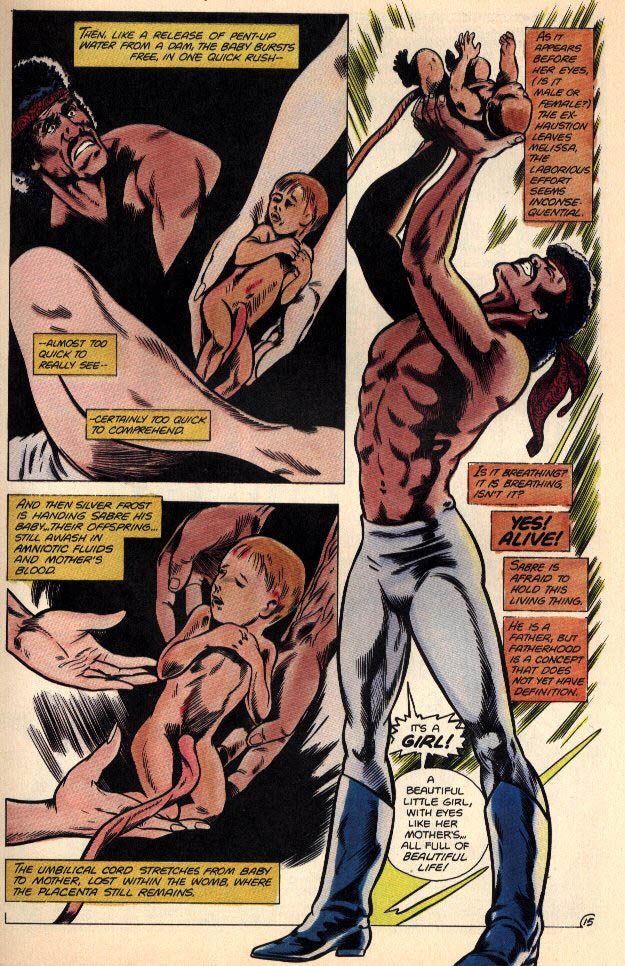 Why did you push the envelope of acceptance with your characters?
Why did you push the envelope of acceptance with your characters?
I don’t recall ever thinking in my head, “Hey! I’m going to push the envelope!”
Many times I was taken aback when people used phrases like, “Pushing the envelope.”
I was always trying to tell the best story I was capable of in that moment in time. I might fail, but I was giving it everything I had.
I think what the phrase says above anything else is how narrow were the confines what you could or could not do in comics in the mid-70s.
The admittance that racism existed might make it’s way into Pop Culture upon occasion, but you certainly could never have an inter-racial couple, or people who were gay, or transgender, or whatever.
So for me, when you ask this question, it’s really about wanting the stories to have a human agenda. As a writer I wanted to write about the world I saw around me, and I didn’t understand why, in the comics industry, if the company’s and the editor’s bottom line was green, why did they not want to include vast amounts of people that might love comics but there was never any reference that they even existed. The inclusion of divergent characters was reflective what I saw happening to friends and co-workers around me, what they were going through in those days.
Let’s take one example, like having gay characters in a comic. Detectives Incorporated: A Remembrance of Threatening Green, has the first lesbians as center stage people in American comics; Sabre: An Exploitation of Everything Dear has the first gay males as part of the supporting cast. This was influenced by the reflection of the society that was around me, having friends who were gay, seeing what they had to face and how careful they had to be in those days, people could lose their jobs if it were discovered, and I’m sorry but comics were not…they weren’t that progressive. I wish they were. I wish there hadn’t had to be a fight. Or so many hard stands to just want to include all humans and hopefully expand, open up the comics medium, a little bit.
Thank God a person like Dean Mullaney came around and said ‘look Don, write what you want.’
No push back from anybody at all, in editorial, or…?
None. Not from the get-go. Not at the end. Never.
That’s where I think trailblazer, that’s where I think changing minds comes in. Do you pay attention to anything going on in the comics industry today? Or has that passed you by? Besides the movies.
I haven’t really read regular comics since I left staff in 1976, and I never felt the need to keep up with everything current. People would say oh you should read this book or you should read this series, and they may be great, but, first of all I’m doing a lot of research on the books I’m writing , so my time frame to be able to do that limits what outside material I might read…and the stuff I was reading in the 80’s would have been Milton Caniff’s Terry and the Pirates. At that time Dean wasn’t doing the strips yet, but, Jim Salicrup’s, his company, Papercutz was part of that company, NBM…so I was reading Dick Tracy and Terry and the Pirates and Prince Valiant was being done, I think by Fantagraphics, because it was the first time you could actually read these influential and important strips in complete. I had a lot of exposure to Dick Tracy, say, when I was writing the Warren Horror Stories or PANTHER’S RAGE, but only had sporadic exposure to many of the strips I loved, like ON STAGE.
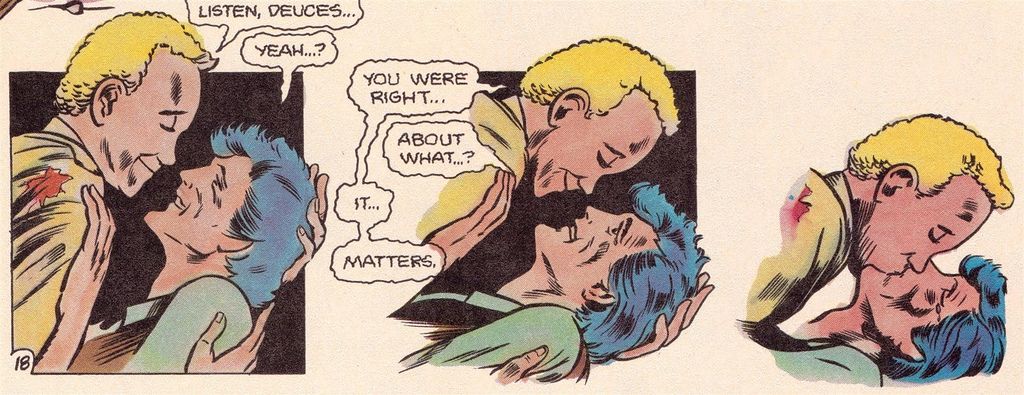 So in that time-frame, the 1980s, I was really catching up on these magnificent comics the created the language of the medium. And still now, I get so many of the books that Dean puts out, I think Dean has had a historical impact on this medium that most people don’t even recognize. I met Dean through the Black Panther and Killraven books because he used to write letters to them all the time, and I met many people through the conventions who were passionate about the stories.
So in that time-frame, the 1980s, I was really catching up on these magnificent comics the created the language of the medium. And still now, I get so many of the books that Dean puts out, I think Dean has had a historical impact on this medium that most people don’t even recognize. I met Dean through the Black Panther and Killraven books because he used to write letters to them all the time, and I met many people through the conventions who were passionate about the stories.
Dean and I started to talk a little bit about that, but that’s where I really began on a much smaller scale than the film impact had, about audiences realizing how much people were responding to these books. A lot of people didn’t want the Avengers to come into the Black Panther and save him.
As the series went along, it became too important to me to undermine what I’d built up under so much negativity. Editorial might have wanted it, but my feeling was the black guy doesn’t need a whole bunch of white guys to come in to help him. We’re undermining so much of what those books had set up. That doesn’t meant that they didn’t continue to want white people, because, believe me, they wanted white people.
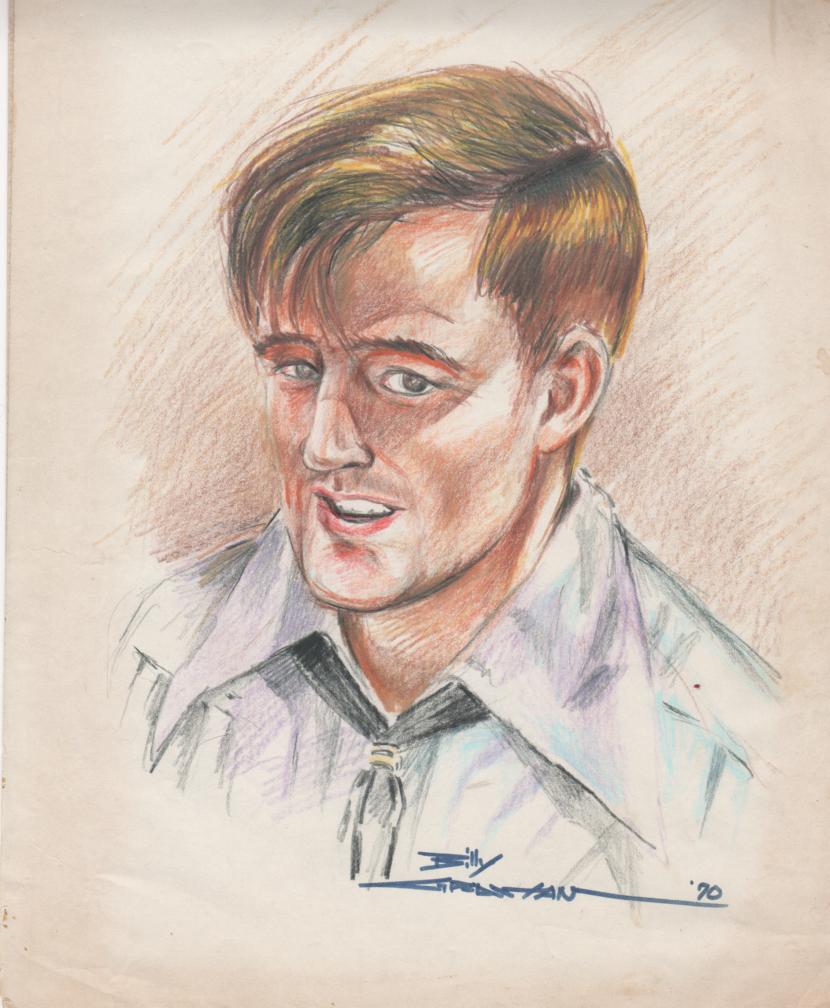 Are you proud that you did it your way?
Are you proud that you did it your way?
I didn’t know any other way to do it. What I really am glad to see is that the books are being discovered by new audiences and by and large what people have said to me, they are still responding to the human elements of these stories, still moved by the emotional difficulties that we face as human beings, then and now. These books are 40 years old, they could have dated terribly. I think that since they weren’t mired in the prevalent attitude of the times is one of the reasons they still resonate with people. If they were adhering to what was going on at in the 1970s, they wouldn’t have such a powerful impact for so many people. So I’m glad that exists.
Do you think, after almost 50 years, your work is finding it’s way to more people of color than they did in the 70’s?
I always had a mixed ethnic bunch of readers. I think because the books are represented by all kinds of people, people from all different walks of life come and talk to me about that, so certainly there was a black audience for those Black Panther books, but, you know, when Sabre came out, there was even more strong response to a character that was so radical, and a graphic novel that went to places that weren’t in the comics medium in 1978.
Michael Davis, every once in awhile, still expresses his love for Sabre.
And this year, work has begun on diligently restoring all of the late Billy Graham’s art on Sabre: An Exploitation of Everything Dear. For the first time ever, Sabres 3 – 9 will be collected into one volume. There might even be more than one format available. It’s still in the working stages, but remember, when I created Sabre in 1977 (It didn’t see print until 1978 and was held up and almost not completed because of the sexuality between Sabre and Melissa Siren.) reactions when I first spoke about the character were “Who’s going to buy a book about a black guy with a lot guns, Don?”
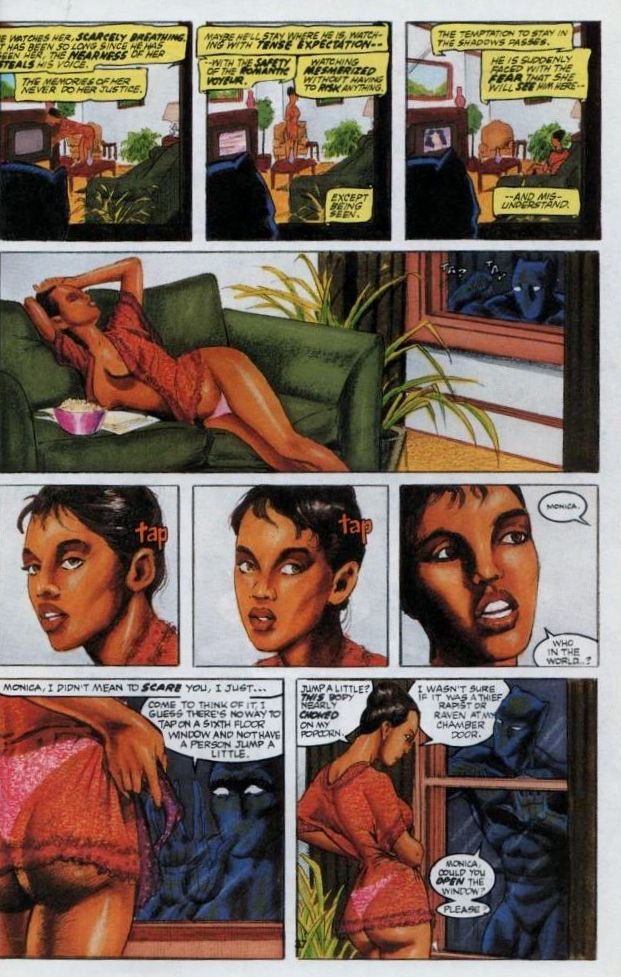 Really?
Really?
You have this strong looking black guy, who’s having this really sexual love affair with this white woman, AND he takes on the government. Or, more aptly, the Government takes on him.
What’s not to love?
Now, only racists are going to hate that book!
So, I told Dean when he first approached me, I had talked to him about the concept. Dean didn’t publish comics yet. He was a comics fan. He had an outside job doing…I don’t remember exactly what he was doing, but he had come over to my place and I was showing a 60mm print of something. Probably I, Spy or something like that.
I must have showed Dean a concept drawing for Sabre and talked about what I wanted to do with it, but we’re just talking to each other like you and I are doing here at AJs diner, we’re just talking…Dean didn’t publish comics.
And then he gave me a call a couple of days later and said ‘Don, I want to publish Sabre’.
I said what are you talking about, you don’t have a company.
He said ‘Yeah. But I want to start one and I want to start with Sabre’.
And I said I want the rights to everything and he said ‘You got it!’.
Then I said I want final say, I don’t want anyone to change anything in my books unless I OK it and i make the change myself.
‘You got it!’
And I added three or four other things that I wanted and I said well you better come on over right now we need to talk!
But everybody thought we were crazy at that point in time. I know some people debate on whether or not Will Eisner’s A Contract with God was first or Sabre: Slow Fade of an Endangered Species. But Sabre took two years to get on to the stands and there’s a major difference between Will’s Contract with God and Sabre and the major difference is that Will had a deal set up where he could sell the book in bookstores. Now, believe me, if Dean and I knew how to get Sabre into 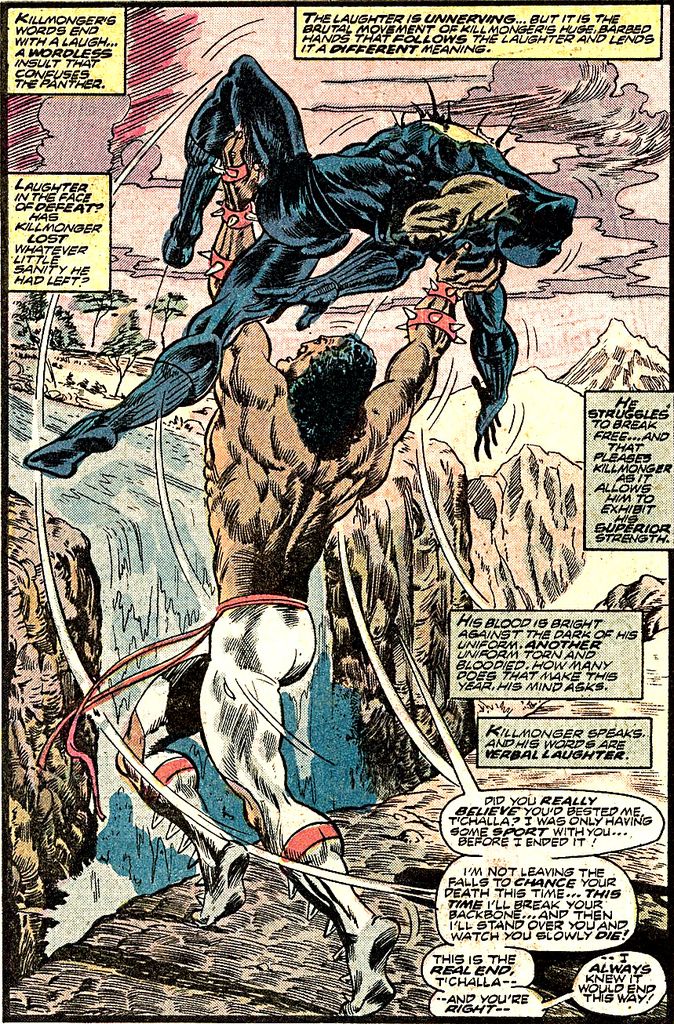 bookstores, we would have been all for it! That, at that point, was not an option for us, plus it would have been other difficulties. The thing about comics is unlike, even film, in those days you would have to run the print of the film to see if there was an offending scene. In comics the image is stationary, it’s right there. So, if you have a sequence where there is a black guy having explicit sex with a white woman, that page is always immediately available, even if it’s only one page in the entire book. If you put that in a bookstore, it’s RIGHT THERE and it’s not like in a descriptive passage and you have to thumb through the fine notes it’s RIGHT THERE.
bookstores, we would have been all for it! That, at that point, was not an option for us, plus it would have been other difficulties. The thing about comics is unlike, even film, in those days you would have to run the print of the film to see if there was an offending scene. In comics the image is stationary, it’s right there. So, if you have a sequence where there is a black guy having explicit sex with a white woman, that page is always immediately available, even if it’s only one page in the entire book. If you put that in a bookstore, it’s RIGHT THERE and it’s not like in a descriptive passage and you have to thumb through the fine notes it’s RIGHT THERE.
A lot of people thought that comic book stores were a small percentage of their sales.
I think back in those days they thought it was something like 10%-13% so it wasn’t just on one front of what we were going to have in the books, but like, what are you crazy? There’s not enough audience they won’t be able to support the book. I can tell you we sold that first issue out in…two months? But it took two years to get it out there. And I had said to Dean at the time, it has to break every rule of what you can do in comics. Even the unwritten ones. And if we’re not going to do that, i might as well just stay and do stuff at Marvel, tell them whatever you want, I’ll do it. I could think that, and if you have ever read the piece Investigating Detectives Inc. you will know what I’m talking about with not being able to buy a Christmas tree for my daughter when she was five years old. But though, that night, I would have sold my soul to the devil, the actuality probably is I would have no clue how to stay inside the restrictive cage editorial would keep locked. In fact, I’m doing an interview with Craig Russell…
Craig Russell was your artist on Killraven?
Yes. And that’s where we did the first inter-racial kiss at Marvel comics, and don’t think that wasn’t…it was NOT easy to get it through. I had artists quit the book.
I just read your Killraven run last week.
And?
I loved it. Couldn’t put it down. Can I show you something? I don’t know if you know, you ever heard of Marvel Unlimited? I have this app on my phone.
Oh I thought Marvel Unlimited was a book.
So if I want to read Black Panther I can just pull it up and I can read it right on my phone.
Oh! Wow!
Pretty cool!
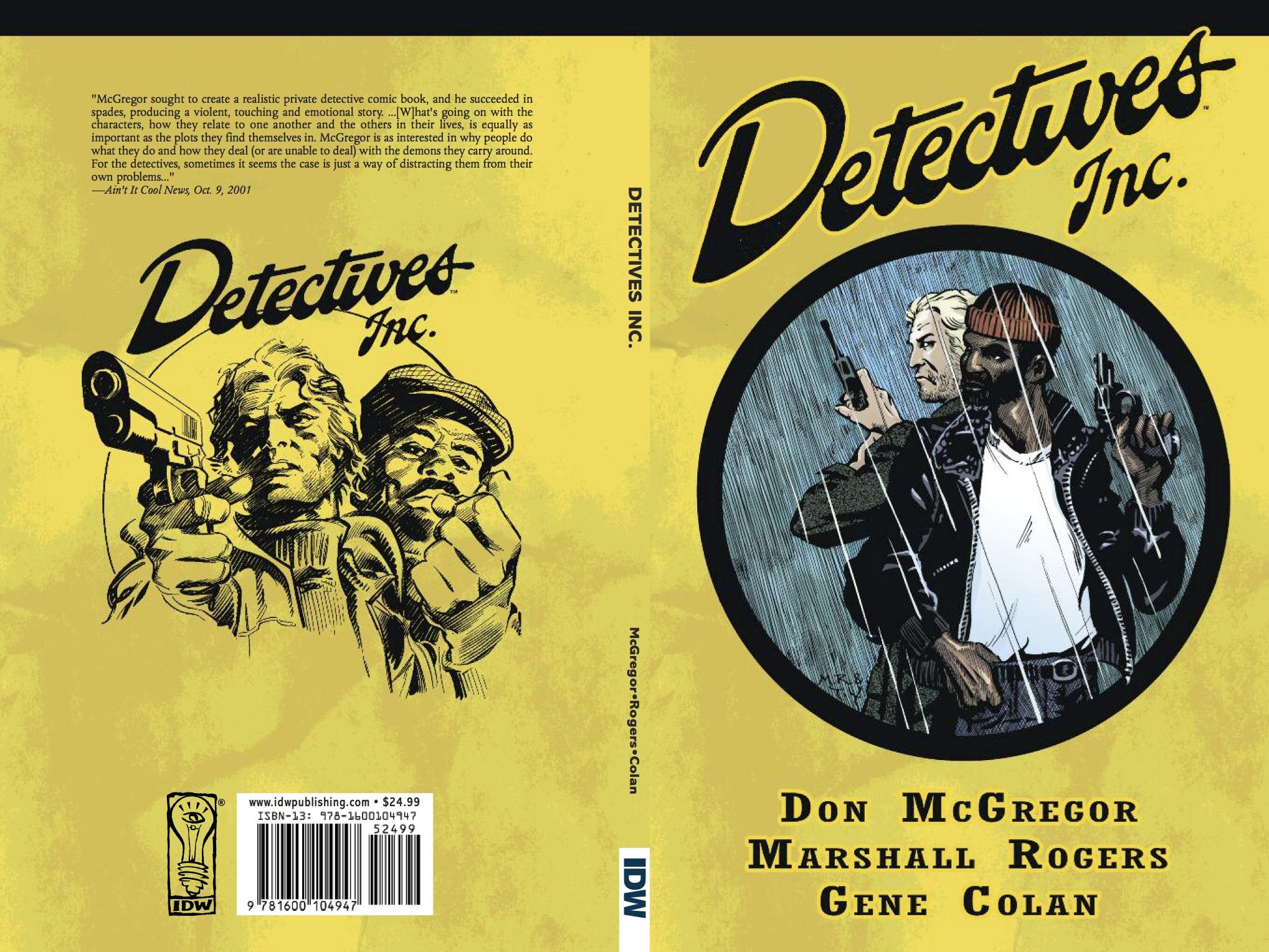 Yeah, it really is. And pretty much all your Marvel work is on there, all the Black Panther Jungle Actions, Killraven…
Yeah, it really is. And pretty much all your Marvel work is on there, all the Black Panther Jungle Actions, Killraven…
I don’t think Panther’s Prey is. For some reasons I’m hearing stories now, because sometimes you learn things about your books years down the line that you didn’t even know were a problem. But apparently, because of the success of the movie and the character being so high-profile now, there’s some hesitancy because Panther’s Prey has, I guess for them, some adult material. There’s a sequence in there with his Mom, Ramonda, and I didn’t know it was a problem, somebody sent me something on the internet. Apparently there were people in editorial at the time the book was being written that didn’t want this in the books. Terry Kavanaugh was my editor, and I was just with Terry back in New York in December, and I actually asked about it because I’ve just been seeing all of this stuff recently. I said I don’t remember any flak, there was a problem with one scene and it ended up being the most surreal, bizarre conversation I ever had at Marvel comics but it wasn’t over THAT scene. I’m reading this stuff that someone sent me so what I said to Terry was I hear there’s a reluctance to reprint any of the Panther’s Prey stuff even though it has all this lovely Dwayne Turner artwork. That was a formidable book to come back to ten years after Panthers Rage, because people who read it at the time would have high expectations . What are you going to do? How are you going to come back and top that? And so I was very, very concerned about that. I really got lucky when Terry Kavanaugh was the editor. I knew Terry took alot of heat for me because of this one sequence we’re talking about. Apparently, it is true, there was a big editorial meeting and people did not want it. This was about rape, and we don’t do rape in Marvel Comics, something of that nature. And they expected Terry to go in and say ‘No, this isn’t about rape’ and he said ‘Yes it is’. All I know is sometimes books need an advocate and Terry Kavanaugh was always there and fought for what I was doing 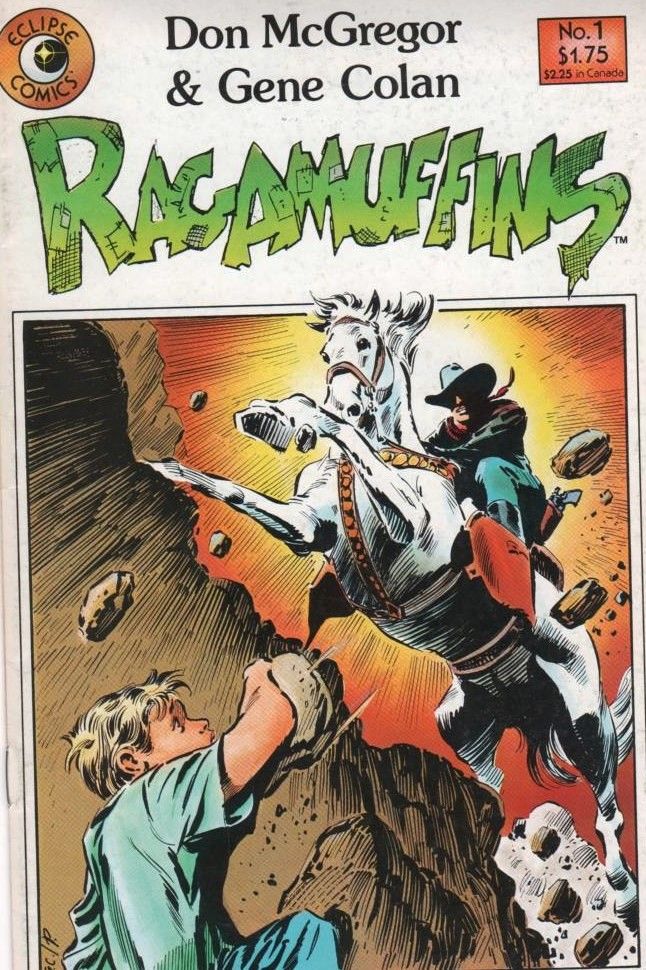 and it’s only by chance, because he isn’t that one that got me to come back to Marvel Comics, Michael Higgins was. Michael Higgins was taking me out to dinner every other week, and i know he was trying to get me drunk because I kept saying I’m not coming back to do the Black Panther. I love the Black Panther. I love writing T’Challa. But it was fraught with a lot of trauma, a lot of fighting and I said I’m tired of fighting with you guys I’m not going to put 30%-40% of my energy having to fight with you guys just to get stuff in the books. And we had a number of meetings, because he wanted me to do Killraven and Black Panther and I finally said if Craig is going to do it, I’ll come back and do Killraven. And immediately Michael said ‘OK. And then we’re going to do Black Panther too.’ I said no Michael, no we’re not, and then I said something that normally I probably wouldn’t have. I said something like I always kind of wanted to do this story-line about the Black Panther searching for his mother in South Africa and dealing with Apartheid. And Mike says ‘We’re doing it!’ No, Michael, we’re not doing it because this is not going to be a story where the Black Panther goes into South Africa and solves Apartheid and if that’s what you think, I’m not interested in doing it. That’s not what this is about. ‘No, Don, we’re doing it! We’re doing it!’ And finally I said yes, I think I was actually writing the second page of the story and I get a call from Mike late one night and Michael goes ‘I’m not doing the book’ . What do you mean you’re not doing the book, Michael? ‘I’m leaving, I’m not editing Marvel Comics Presents.’ And I think that Michael is kidding just because I gave him a hard time for a couple months about coming back, and now that I’m doing it, Michael is just like it’s payback time for Don. I said I’m not falling for this what do you mean I’m on page two and now you’re telling me you’re not editing the book? He says ‘I’m gone, Don’. And he was. So I had to call up the editor-in-chief Tom DeFalco and I said to him who’s editing the book? ‘We don’t know, just write the book. Just go write it.’ I said no, no I need to know who’s editing the book and this is…I diverge for a moment…I was recently with Fabian Niceiza and Fabian and I were taking photographs together and joking around, I like Fabian a lot, and I wouldn’t stand still for a photo, I like pictures to be in motion. I don’t like that posed look, it doesn’t capture anything from either the connection between the people or…so anyway, Fabe says to me, a bunch of people photographing us, he says something to me like ‘you know Don, if I was your editor I think you and I would clash.’ And I later told Fabe no we wouldn’t clash because you’re looking at it from an editor’s point of view and your point of view as do many editors in comics, they’re looking to see if they’re going to choose that writer for the assignment. I said if I come in to your office for a meeting to talk to you about a book I’m looking at you just as seriously. Do I want you as an editor? And if we’re not on the same thought on what this book is going to be then believe me I’m going to tell you I’m not doing it. And so most of the books you’re pretty much going to say that if you liked them, it’s Don McGregor. If you hate them, it’s Don McGregor. It is what it is. But they’re my books. And they’ll go to the grave that way.
and it’s only by chance, because he isn’t that one that got me to come back to Marvel Comics, Michael Higgins was. Michael Higgins was taking me out to dinner every other week, and i know he was trying to get me drunk because I kept saying I’m not coming back to do the Black Panther. I love the Black Panther. I love writing T’Challa. But it was fraught with a lot of trauma, a lot of fighting and I said I’m tired of fighting with you guys I’m not going to put 30%-40% of my energy having to fight with you guys just to get stuff in the books. And we had a number of meetings, because he wanted me to do Killraven and Black Panther and I finally said if Craig is going to do it, I’ll come back and do Killraven. And immediately Michael said ‘OK. And then we’re going to do Black Panther too.’ I said no Michael, no we’re not, and then I said something that normally I probably wouldn’t have. I said something like I always kind of wanted to do this story-line about the Black Panther searching for his mother in South Africa and dealing with Apartheid. And Mike says ‘We’re doing it!’ No, Michael, we’re not doing it because this is not going to be a story where the Black Panther goes into South Africa and solves Apartheid and if that’s what you think, I’m not interested in doing it. That’s not what this is about. ‘No, Don, we’re doing it! We’re doing it!’ And finally I said yes, I think I was actually writing the second page of the story and I get a call from Mike late one night and Michael goes ‘I’m not doing the book’ . What do you mean you’re not doing the book, Michael? ‘I’m leaving, I’m not editing Marvel Comics Presents.’ And I think that Michael is kidding just because I gave him a hard time for a couple months about coming back, and now that I’m doing it, Michael is just like it’s payback time for Don. I said I’m not falling for this what do you mean I’m on page two and now you’re telling me you’re not editing the book? He says ‘I’m gone, Don’. And he was. So I had to call up the editor-in-chief Tom DeFalco and I said to him who’s editing the book? ‘We don’t know, just write the book. Just go write it.’ I said no, no I need to know who’s editing the book and this is…I diverge for a moment…I was recently with Fabian Niceiza and Fabian and I were taking photographs together and joking around, I like Fabian a lot, and I wouldn’t stand still for a photo, I like pictures to be in motion. I don’t like that posed look, it doesn’t capture anything from either the connection between the people or…so anyway, Fabe says to me, a bunch of people photographing us, he says something to me like ‘you know Don, if I was your editor I think you and I would clash.’ And I later told Fabe no we wouldn’t clash because you’re looking at it from an editor’s point of view and your point of view as do many editors in comics, they’re looking to see if they’re going to choose that writer for the assignment. I said if I come in to your office for a meeting to talk to you about a book I’m looking at you just as seriously. Do I want you as an editor? And if we’re not on the same thought on what this book is going to be then believe me I’m going to tell you I’m not doing it. And so most of the books you’re pretty much going to say that if you liked them, it’s Don McGregor. If you hate them, it’s Don McGregor. It is what it is. But they’re my books. And they’ll go to the grave that way.
*Edited by Don McGregor
Author Profile
- Host of UCPN's No-Prize Podcast, all about Marvel! Bud has been an avid collector and reader of Marvel comics for over 30 years.
Latest entries
 Comic BooksNovember 2, 2020ADVANCE REVIEW: Marvel: The First 80 Years: The True Story of a Pop-Culture Phenomenon
Comic BooksNovember 2, 2020ADVANCE REVIEW: Marvel: The First 80 Years: The True Story of a Pop-Culture Phenomenon InterviewsMarch 5, 2020An Interview with Don McGregor by Bud ‘The Professor’ Young Pt. 2
InterviewsMarch 5, 2020An Interview with Don McGregor by Bud ‘The Professor’ Young Pt. 2 InterviewsFebruary 27, 2020An Interview with Don McGregor by ‘The Professor’ Bud Young Pt. 1
InterviewsFebruary 27, 2020An Interview with Don McGregor by ‘The Professor’ Bud Young Pt. 1 Comic BooksAugust 23, 2018CONVENTION REVIEW: TERRIFICON
Comic BooksAugust 23, 2018CONVENTION REVIEW: TERRIFICON







